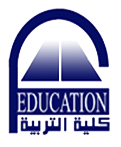The field of English language teaching and assessment has undergone significant transformations in recent years, driven by advancements in research, pedagogy, and technology. The necessity for effective teaching and assessment of linguistic knowledge and skills has never been more pressing, particularly in contexts where English is taught as a foreign language. This textbook, Teaching and Assessing Linguistic Knowledge and Skills, is designed to provide general diploma students (2nd route) with a comprehensive understanding of the fundamental principles and best practices in English language teaching, assessment, and skill development.
The book is structured to equip future educators with both theoretical knowledge and practical applications. Chapter One lays the foundation by exploring key concepts in language assessment, test design, and alternative assessment methods, ensuring that students grasp the essential elements of fair and effective testing. The chapter also introduces the integration of technology in language assessment, emphasizing the role of teachers as reflective practitioners.
Chapter Two delves into the essential skills and strategies for developing effective reading abilities. In today’s digital age, reading is no longer confined to print materials; online reading and digital literacy are indispensable. This chapter equips students with the skills necessary to navigate various types of reading tasks, including critical reading and data retrieval using the SEARCH framework.
Chapter Three focuses on vocabulary acquisition, a cornerstone of language proficiency. Given the linguistic challenges faced by Egyptian learners, this chapter presents effective techniques for acquiring, retaining, and applying vocabulary in diverse contexts. Understanding the importance of lexical development contributes significantly to students' overall language competence.
In Chapter Four, attention shifts to composition skills and academic writing. Writing is a fundamental component of communication, and developing structured, coherent, and well-articulated texts is crucial for academic and professional success. This chapter guides students through paragraph development, presentation of ideas, editing, and revising, while also addressing the unique conventions of academic writing.
The inclusion of WebQuest as an instructional strategy in Chapter Five highlights the role of inquiry-based learning in language teaching. The chapter provides insights into the structure and implementation of WebQuests, demonstrating their effectiveness in fostering student engagement and independent learning.
Recognizing that assessment is a continuous process, Chapter Six presents practical strategies for test preparation. Students will find guidance on understanding test formats, managing time effectively, utilizing study techniques, employing memory aids, and overcoming test anxiety. These strategies are essential for success in language learning and assessment.
To support students' comprehension of key terminologies, Chapter Seven provides a glossary of essential educational and language learning terms. This serves as a quick reference for concepts that are integral to both teaching and assessment practices.
As I present this textbook, my goal is to empower educators with the knowledge and skills required to teach and assess English effectively. I hope that this book serves as a valuable resource for general diploma students, guiding them towards becoming proficient and reflective language teachers who can inspire and support their learners.
Dr Mahmoud M. S. Abdallah (February, 2024)


